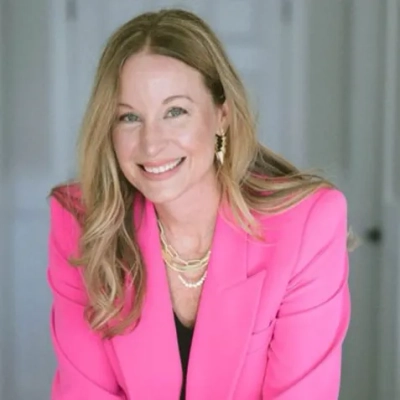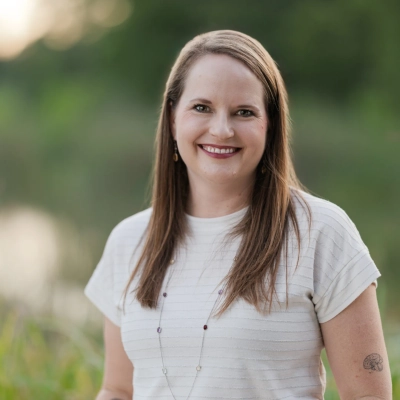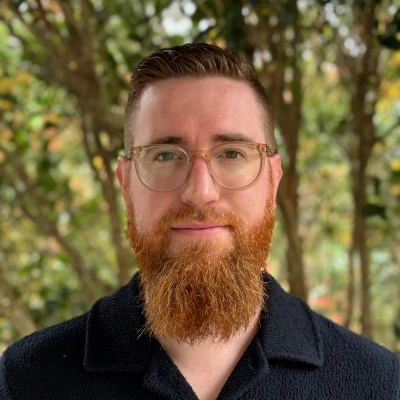6 Strategies to Overcome Burnout as a Counselor
Burnout among counselors presents unique challenges that require effective coping strategies, as highlighted by mental health professionals with years of experience. This article outlines six practical approaches to help counselors maintain their wellbeing while continuing to serve their clients effectively. Drawing from expert insights, these strategies focus on self-care practices, boundary-setting techniques, and community-building methods essential for sustainable counseling careers.
Prioritize Self-Care to Maintain Therapeutic Effectiveness
Self-care isn't optional in our field—it's essential for maintaining the energy and compassion needed to effectively support others. I strongly recommend establishing regular self-care routines and remaining vigilant about signs of compassion fatigue before they develop into full burnout. Using professional supervision effectively can provide both guidance and emotional support when you're feeling overwhelmed. Remember that prioritizing your wellbeing isn't selfish—it's what allows you to continue making a meaningful difference in your clients' lives.

Honor Your Limits and Align With Calling
If you're feeling burned out, don't rush to fix it. Sit with it. Burnout often exposes the space between what you give and what's actually being replenished in you. Instead of trying to get back to normal, ask what the exhaustion is trying to teach. Sometimes it shows you've been carrying clients' pain without letting yourself grieve. Other times it reveals that your sense of worth has become tied to being helpful.
What has helped me stay resilient is not balance but alignment. When my work flows from calling rather than performance, I can hold hard stories without being swallowed by them. I build margin into my week for silence, play, and prayer as a way of remembering that I am a person before I am a therapist. Resilience grows from knowing your limits and honoring them. I've learned to live by a rule of life, a simple pattern of rest, reflection, and relationships, and to keep it with integrity. When we protect our capacity, we make room for grace to do what effort cannot.
Protect Curiosity and Structure Professional Boundaries
My core advice is to treat your own curiosity as your most protected asset. Burnout often sets in when our work shifts from a process of discovery to one of obligation. When every session feels like a repetition of the last, we lose the spark that drew us to this field. Actively seeking out new knowledge reminds us that there is always more to learn about the human mind.
One of the most effective strategies for me is to deliberately schedule time for learning that has nothing to do with immediate patient demands. For example, I recently completed a certification in the ADOS-2 for toddlers and other modules. It was intellectually demanding, but it was also a powerful reset. Immersing myself in a new skill set got me out of my own clinical loops and re-energized my perspective on diagnostics.
The other key strategy is structural. In my practice, I have a hard stop to my clinical day because resilience isn't just about mental frameworks; it's about having the time and energy for a life outside the office. Protecting that time is non-negotiable, as it allows me to be present for my wife and family and to recharge the battery that I need to be effective for my patients the next day.

Implement Strategic Pauses Throughout Your Day
Having experienced burnout multiple times in my career, I understand how profoundly it can affect your well-being. My top advice for overwhelmed counselors is to establish healthy boundaries that prevent overcommitment.
What has worked well for me is implementing "strategic pauses" - intentionally scheduling brief moments throughout the day for self-care. This might be blocking off 10 minutes after client meetings, taking a quick walk around the block, or simply stepping outside for a few minutes of fresh air and sunshine.
Remember that regular self-care isn't selfish; it's absolutely necessary to recharge your batteries so you can continue providing the quality support your clients deserve.
Recovery from burnout is often a slow, gradual process that requires both grace and self-compassion, but these small, consistent daily shifts can make a significant difference in your energy, health, and resilience.

Recognize Signals and Reset Your Nervous System
Burnout is the body's way of signaling that the current pace is unsustainable. I help counselors recognize those signals and build simple practices to reset their nervous system. When they do, they feel more grounded and present, which protects their well-being and strengthens the impact they have with clients.

Build Community to Transform Isolation Into Connection
Feeling discouraged or burned out is sadly more and more common for counselors right now. We're constantly holding space for others' pain, while often experiencing pain ourselves, and that takes a real toll on our nervous systems. The most powerful way to stay grounded is through community and connecting with other counselors who understand the emotional impact of this work. Talking openly about our work helps transform isolation into meaning and connection. It's also through community with colleagues that you can celebrate the wins, big and small, you get to experience with the clients you serve. This is called vicarious resilience, and once you learn how to notice it in session, sharing it with fellow counselors enhances its positive impact and turns it into a renewable source of energy to help combat burnout. I stay resilient by naming my own impact with the clients I serve, reaching out instead of retreating, and remembering that we heal best the same way our clients do—through relationship and community.



